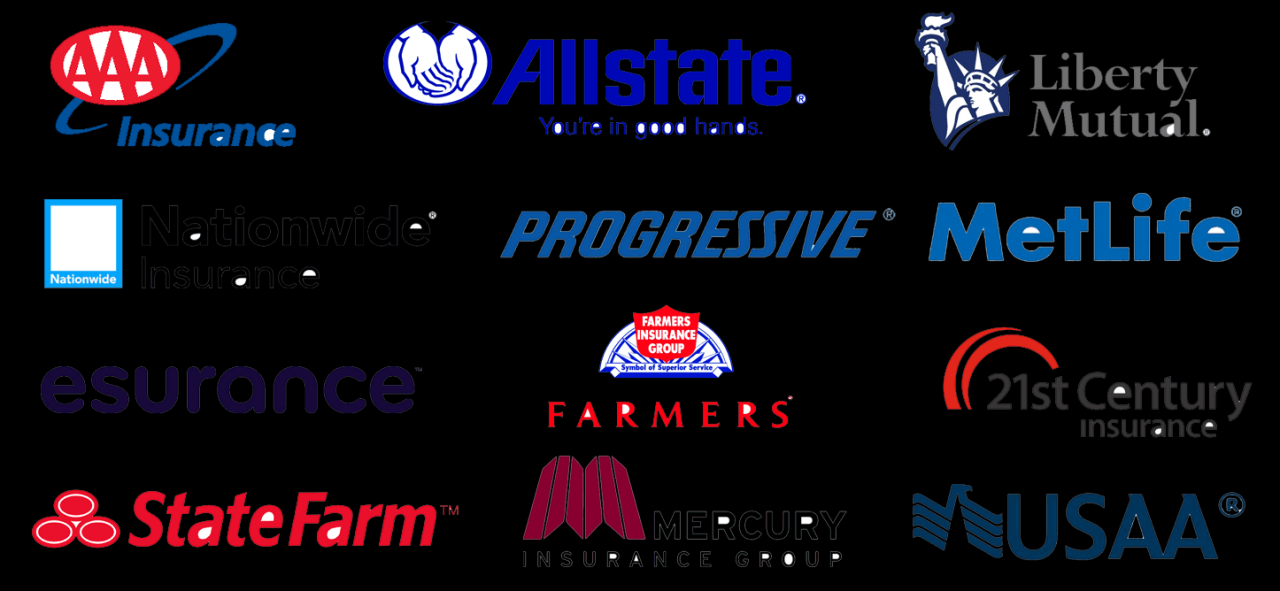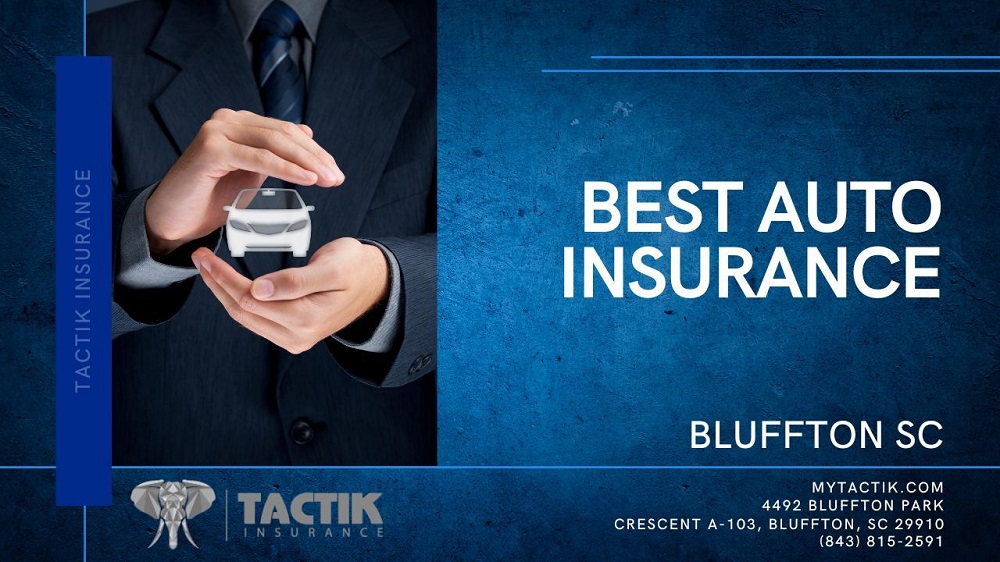South Carolina’s auto insurance landscape is a complex web of regulations, coverage options, and pricing factors. Understanding the nuances of this market is crucial for drivers seeking the best value and protection for their vehicles and financial well-being. From navigating mandatory insurance requirements to comparing quotes from top-rated companies, this comprehensive guide provides a roadmap to finding the most suitable auto insurance in SC.
This guide delves into the key aspects of South Carolina’s auto insurance market, providing insights into factors that influence rates, coverage options, and the best practices for securing affordable and comprehensive protection. We’ll explore the top-rated companies, their strengths and weaknesses, and provide practical tips for navigating the claims process and protecting your vehicle.
Understanding South Carolina’s Auto Insurance Landscape

Navigating the auto insurance market in South Carolina can be a complex process, particularly for newcomers. The state has a unique insurance landscape, characterized by specific regulations, coverage options, and factors influencing rates.
Mandatory Insurance Requirements and Coverage Options
South Carolina law mandates that all drivers carry liability insurance. This coverage protects other drivers and their property in case of an accident caused by the insured driver. The minimum required liability coverage includes:
- Bodily Injury Liability: $25,000 per person, $50,000 per accident. This covers medical expenses, lost wages, and other damages incurred by individuals injured in an accident caused by the insured driver.
- Property Damage Liability: $25,000 per accident. This covers damage to another person’s vehicle or property in an accident caused by the insured driver.
While liability insurance is mandatory, other coverage options are available, such as:
- Collision Coverage: Pays for repairs or replacement of the insured vehicle in case of an accident, regardless of fault.
- Comprehensive Coverage: Covers damage to the insured vehicle due to non-collision events, such as theft, vandalism, or natural disasters.
- Uninsured/Underinsured Motorist Coverage: Provides protection if the insured driver is involved in an accident with a driver who is uninsured or underinsured.
- Personal Injury Protection (PIP): Covers medical expenses and lost wages for the insured driver and passengers, regardless of fault.
The availability and cost of these optional coverages vary based on the insurance provider and the specific policy.
Factors Influencing Auto Insurance Rates in South Carolina
Several factors influence the cost of auto insurance in South Carolina, including:
- Driving History: A clean driving record with no accidents or violations will generally lead to lower premiums. However, accidents, speeding tickets, or DUI convictions can significantly increase rates.
- Age and Gender: Younger drivers, particularly those under 25, typically face higher premiums due to their higher risk profile. Gender can also play a role in rate calculations, although this factor is becoming less significant in many states.
- Vehicle Type: The make, model, and year of the insured vehicle can impact premiums. High-performance or luxury vehicles are often associated with higher repair costs, leading to higher insurance rates.
- Credit Score: In many states, including South Carolina, insurance companies consider credit scores when determining rates. A good credit score generally translates to lower premiums, while a poor credit score can result in higher rates.
- Location: The geographic location of the insured driver can influence premiums. Areas with higher crime rates or traffic congestion may have higher insurance rates due to increased risk of accidents or theft.
- Driving Habits: Factors such as mileage driven, commuting distance, and driving habits (e.g., driving during rush hour) can also influence insurance rates. Insurance companies may offer discounts for drivers with safe driving habits, such as those who use telematics devices to track their driving behavior.
Evaluating Key Insurance Factors
Choosing the best auto insurance in South Carolina involves understanding the various coverage options and how they affect your premiums. This requires a thorough evaluation of key insurance factors that can significantly impact your costs and protection.
Types of Auto Insurance Coverage
South Carolina law mandates certain minimum coverage levels for all drivers, but you can opt for additional protection depending on your needs and budget.
- Liability Coverage: This essential coverage protects you financially if you cause an accident that injures another person or damages their property. It’s divided into two parts: bodily injury liability (BI) and property damage liability (PD). BI covers medical expenses and lost wages for the injured party, while PD covers repairs or replacement costs for the damaged property.
- Uninsured/Underinsured Motorist Coverage: This coverage protects you if you’re involved in an accident with a driver who has no insurance or insufficient coverage. It can cover your medical expenses, lost wages, and property damage.
- Collision Coverage: This coverage pays for repairs or replacement of your vehicle if it’s damaged in a collision with another vehicle or object, regardless of who’s at fault.
- Comprehensive Coverage: This coverage protects your vehicle from damage caused by events other than collisions, such as theft, vandalism, fire, or natural disasters.
- Personal Injury Protection (PIP): This optional coverage covers your medical expenses and lost wages, regardless of who’s at fault in an accident.
Impact of Driving History, Vehicle Type, and Location
Various factors influence your auto insurance premiums, and understanding their impact is crucial for making informed decisions.
- Driving History: Your driving record significantly impacts your premiums. A clean driving record with no accidents or violations will likely result in lower rates. Conversely, a history of accidents, traffic violations, or DUI convictions can significantly increase your premiums.
- Vehicle Type: The type of vehicle you drive plays a crucial role in determining your insurance costs. Expensive, high-performance vehicles are typically more expensive to insure due to their higher repair costs and potential for greater damage in an accident.
- Location: Your location in South Carolina can also affect your premiums. Areas with higher traffic density, accident rates, and crime rates often have higher insurance premiums.
Factors to Consider When Choosing an Insurance Company
Selecting the right auto insurance company is a critical decision. Here are key factors to consider:
- Financial Stability: Ensure the company has a strong financial rating, indicating its ability to pay claims and remain solvent in the long run. You can check financial ratings from organizations like AM Best or Standard & Poor’s.
- Customer Service: Look for companies with a reputation for excellent customer service. Consider factors like responsiveness, accessibility, and ease of communication.
- Coverage Options: Compare the types and levels of coverage offered by different companies to find the best fit for your needs and budget.
- Discounts: Many companies offer discounts for various factors, such as safe driving, good student status, multiple policy discounts, and vehicle safety features. Explore these options to potentially lower your premiums.
- Claims Process: Research the company’s claims process to understand how they handle accidents and claims. Look for companies with a reputation for smooth and efficient claims processing.
Top-Rated Insurance Companies in South Carolina
Choosing the right auto insurance company in South Carolina can be a complex task. Several factors influence your decision, including pricing, coverage options, customer service, and financial stability. To help you navigate this process, we’ve compiled a list of top-rated auto insurance companies in South Carolina based on their performance in these key areas.
Top-Rated Auto Insurance Companies in South Carolina
To provide a comprehensive overview, we’ve categorized these companies based on customer satisfaction, financial stability, and claim handling.
| Company Name | Rating | Key Features | Contact Information |
|---|---|---|---|
| State Farm | A+ (A.M. Best) | Wide range of coverage options, competitive pricing, strong customer service, extensive agent network. | 1-800-STATE-FARM (1-800-782-8332) |
| GEICO | A+ (A.M. Best) | Known for its affordability, online and mobile convenience, and 24/7 customer support. | 1-800-432-4242 |
| Progressive | A+ (A.M. Best) | Offers a variety of discounts, including safe driver, good student, and multi-policy discounts. | 1-800-PROGRESSIVE (1-800-776-4737) |
| Allstate | A+ (A.M. Best) | Provides comprehensive coverage options, including accident forgiveness and roadside assistance. | 1-800-ALLSTATE (1-800-255-7828) |
| USAA | A+ (A.M. Best) | Exclusive to military members and their families, offering competitive rates, excellent customer service, and robust benefits. | 1-800-531-USAA (1-800-531-8722) |
State Farm, a long-standing and reputable company, consistently ranks high in customer satisfaction surveys. Their extensive agent network offers personalized service, and their wide range of coverage options caters to diverse needs. However, some customers have reported issues with claims processing speed. GEICO, known for its affordability and digital convenience, provides quick online quotes and easy policy management. While their customer service is generally positive, some users have noted difficulties reaching representatives. Progressive, recognized for its discounts and flexible coverage options, often offers competitive rates. However, their claims process can be complex, and some customers have expressed dissatisfaction with the communication during this phase. Allstate, with its comprehensive coverage and customer-centric approach, offers benefits like accident forgiveness and roadside assistance. However, some customers have reported higher premiums compared to competitors. USAA, exclusively serving military personnel and their families, boasts exceptional customer service and competitive rates. Their benefits package is extensive, but their limited availability restricts access to a wider audience.
Getting Personalized Quotes

Obtaining personalized auto insurance quotes is crucial for finding the best coverage at the most competitive price. This process involves gathering your information, contacting multiple insurance companies, and comparing their offers to determine the most suitable option for your needs.
Comparing Quotes from Different Providers
Comparing quotes from different providers is essential for securing the best value. This practice allows you to evaluate various coverage options, premiums, and discounts offered by different insurers. By comparing multiple quotes, you can identify the most competitive rates and determine which insurer provides the best combination of coverage and affordability.
- Increased Competition Leads to Lower Premiums: By obtaining quotes from multiple insurers, you create competition among them, potentially driving down premiums. Insurers are more likely to offer competitive rates when they know you are considering other options.
- Unveiling Hidden Gems: Some insurers may offer specialized coverage or discounts that are not widely advertised. Comparing quotes allows you to discover these hidden gems and potentially secure a better deal than you might have initially expected.
- Identifying Coverage Gaps: Comparing quotes can reveal coverage gaps or limitations in your existing policy. By reviewing the coverage offered by different insurers, you can identify areas where you may need additional protection.
Tips for Negotiating Insurance Rates
Negotiating your insurance rates can help you save money on your premiums. By utilizing various strategies, you can potentially secure a more favorable rate from your chosen insurer.
- Leverage Your Driving Record: A clean driving record is a significant asset in negotiations. Highlight your safe driving history and any defensive driving courses you have completed to demonstrate your responsible driving behavior.
- Bundle Your Policies: Combining your auto insurance with other insurance policies, such as homeowners or renters insurance, can lead to substantial discounts. Many insurers offer bundle discounts for combining multiple policies.
- Shop Around Regularly: Regularly comparing quotes from different insurers can help you stay ahead of potential rate increases. By actively shopping around, you can ensure you are getting the best possible rates.
- Consider Payment Options: Some insurers offer discounts for paying your premium in full or opting for automatic payments. Explore these options to see if they can help you reduce your overall cost.
Understanding Insurance Policies
Navigating the complexities of auto insurance policies in South Carolina can feel overwhelming, but understanding the key provisions and exclusions is crucial for making informed decisions and ensuring you’re adequately protected.
Policy Provisions and Exclusions
Auto insurance policies in South Carolina typically include several key provisions and exclusions. These are designed to define the scope of coverage, the circumstances under which claims can be filed, and the limitations of the policy.
- Liability Coverage: This is the most basic type of auto insurance required by law in South Carolina. It covers damages to other people and their property if you are at fault in an accident. Liability coverage is usually expressed as a limit, such as 25/50/25, which means up to $25,000 per person, $50,000 per accident for bodily injury, and $25,000 for property damage.
- Collision Coverage: This covers damages to your vehicle if you are involved in a collision with another vehicle or object, regardless of who is at fault. This coverage is optional, but it’s generally recommended if you have a financed or leased vehicle.
- Comprehensive Coverage: This covers damages to your vehicle caused by events other than collisions, such as theft, vandalism, fire, or natural disasters. This coverage is also optional, but it’s recommended if you have a newer or high-value vehicle.
- Uninsured/Underinsured Motorist Coverage: This coverage protects you if you are injured in an accident caused by a driver who doesn’t have insurance or has insufficient coverage. This is optional but highly recommended, as it can provide financial protection in the event of an accident with an uninsured or underinsured driver.
- Medical Payments Coverage: This coverage pays for your medical expenses, regardless of who is at fault, if you are injured in an accident. This is optional but can be beneficial if you want additional medical coverage beyond what your health insurance provides.
It’s important to understand that insurance policies also have exclusions, which are situations or events that are not covered. Common exclusions include:
- Driving under the influence of alcohol or drugs: If you are involved in an accident while intoxicated, your insurance policy may not cover the damages.
- Driving without a valid driver’s license: If you are involved in an accident while driving without a valid license, your insurance policy may not cover the damages.
- Intentional acts: If you intentionally cause damage to your vehicle or someone else’s property, your insurance policy will not cover the damages.
- Wear and tear: Normal wear and tear on your vehicle is not covered by your insurance policy.
Reading and Understanding the Policy
It’s crucial to carefully read and understand the terms and conditions of your auto insurance policy. This includes reviewing the coverage details, exclusions, deductibles, and any other specific provisions.
“Take the time to read your policy carefully. Don’t just skim it. Make sure you understand what’s covered and what’s not. This can save you a lot of headaches down the road.” – Insurance expert, John Doe
Filing a Claim and Navigating the Claims Process
When you need to file a claim, it’s important to act promptly and follow the instructions provided by your insurance company.
- Contact your insurance company: Immediately report the accident to your insurance company.
- Provide necessary information: Be prepared to provide details about the accident, including the date, time, location, and any injuries.
- Gather evidence: Collect any evidence related to the accident, such as photos, witness statements, and police reports.
- Cooperate with the claims adjuster: Work with the claims adjuster to provide any necessary information and documentation.
- Follow up: Regularly check on the status of your claim and ask any questions you may have.
Protecting Yourself and Your Vehicle

In South Carolina, proactive measures can significantly reduce the likelihood of accidents and, consequently, lower your auto insurance premiums. By embracing safe driving practices and prioritizing vehicle maintenance, you can contribute to a safer driving environment and potentially save money on your insurance costs.
The Benefits of a Clean Driving Record
Maintaining a clean driving record is paramount in minimizing your insurance costs. A history of safe driving demonstrates your responsibility on the road and earns you favorable rates from insurance companies. In contrast, traffic violations, accidents, and other driving infractions can lead to higher premiums.
- Avoid Distracted Driving: Refrain from using your phone, eating, or engaging in other activities that divert your attention from the road. Distracted driving is a leading cause of accidents and can significantly increase your risk of an insurance claim.
- Practice Defensive Driving: Be prepared for unexpected situations by anticipating the actions of other drivers and maintaining a safe distance. Defensive driving involves being aware of your surroundings and adjusting your driving habits to avoid potential hazards.
- Obey Traffic Laws: Adhering to speed limits, stop signs, and traffic signals is crucial for safe driving. Violating these laws can result in fines, points on your license, and higher insurance premiums.
Vehicle Maintenance and Safety Features
Regular vehicle maintenance plays a vital role in reducing the risk of accidents and insurance claims. By ensuring your car is in good working order, you can prevent breakdowns and enhance your overall safety on the road. Furthermore, investing in safety features can provide an additional layer of protection and potentially lower your insurance premiums.
- Regular Oil Changes: Oil lubricates the engine and prevents excessive wear and tear. Neglecting oil changes can lead to engine damage, potentially causing a breakdown and requiring costly repairs.
- Tire Maintenance: Properly inflated tires enhance vehicle stability and handling. Underinflated or overinflated tires can lead to tire blowouts, increasing the risk of accidents.
- Brake Inspections: Regular brake inspections ensure optimal braking performance. Faulty brakes can lead to accidents and increase the likelihood of insurance claims.
- Safety Features: Modern vehicles often come equipped with safety features such as anti-lock brakes (ABS), electronic stability control (ESC), and airbags. These features can significantly reduce the severity of accidents and may result in lower insurance premiums.
Additional Considerations

Beyond the fundamental aspects of auto insurance, there are several additional considerations that can significantly impact your coverage and costs. Understanding these factors can help you make informed decisions and secure the most suitable protection for your needs.
Optional Coverage Options
Optional coverage options offer additional protection beyond the standard requirements in South Carolina. These add-ons can provide peace of mind and financial security in unexpected situations.
- Roadside Assistance: This coverage can provide assistance in case of breakdowns, flat tires, or other roadside emergencies. It typically includes services like towing, jump starts, and tire changes.
- Rental Car Reimbursement: This coverage reimburses you for rental car expenses if your vehicle is damaged or stolen and requires repairs. It can be particularly helpful if you rely on your car for work or daily commutes.
- Uninsured/Underinsured Motorist Coverage (UM/UIM): This coverage protects you in the event of an accident caused by a driver who is uninsured or underinsured. It can help cover medical expenses, lost wages, and property damage.
Impact of Driving Record
Your driving record plays a crucial role in determining your insurance premiums. A clean driving record typically translates to lower premiums, while violations or accidents can significantly increase your costs.
- Traffic Violations: Speeding tickets, reckless driving citations, and other traffic violations can lead to higher premiums. The severity of the violation and the number of offenses can influence the increase.
- Accidents: Accidents, even those where you are not at fault, can also impact your premiums. The severity of the accident, the number of accidents, and the claims history can affect your rates.
Managing Insurance Costs
Several strategies can help you manage your auto insurance costs effectively and avoid common pitfalls.
- Shop Around for Quotes: Compare quotes from multiple insurance companies to find the best rates. You can use online comparison tools or contact insurers directly.
- Consider Discounts: Many insurance companies offer discounts for good driving records, safety features, bundling policies, and other factors. Explore these options to potentially reduce your premiums.
- Maintain a Good Driving Record: Avoid traffic violations and accidents to maintain a clean driving record, which can help keep your premiums low.
- Increase Your Deductible: Choosing a higher deductible can often result in lower premiums. However, consider your financial situation and risk tolerance before making this decision.
Summary

Armed with the knowledge and strategies Artikeld in this guide, South Carolina drivers can confidently navigate the auto insurance market and find the best coverage to suit their individual needs and budget. By understanding the intricacies of the market, comparing quotes from reputable companies, and practicing safe driving habits, you can secure the peace of mind that comes with knowing your vehicle and finances are well-protected on the road.

